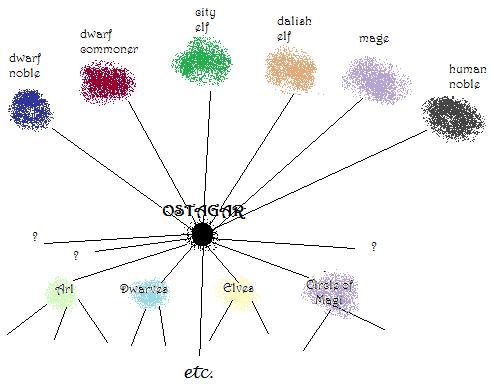For my work this term, I’m reading quite a bit about ancient myth as it relates to heroes and heroines. I was thinking today about how odd it is myth exists in a changeable kind of limbo. There is no Bible of Greek Myth (Amazon may differ on that point) that people can go to in order to check authenticity.  I can tell a story of Odysseus; you can tell a story of Odysseus; Jimbob C. can tell a story of Odysseus. They do not need to be the same. Some things will not change – he will have a wife named Penelope. He will either be in the process of a journey, homeward or not, or he will be at some point expecting or reflecting on the journey. He will be wily and skilled in rhetoric. Aside from these core traits, your Odysseus and my Odysseus could have radically different lives.
I can tell a story of Odysseus; you can tell a story of Odysseus; Jimbob C. can tell a story of Odysseus. They do not need to be the same. Some things will not change – he will have a wife named Penelope. He will either be in the process of a journey, homeward or not, or he will be at some point expecting or reflecting on the journey. He will be wily and skilled in rhetoric. Aside from these core traits, your Odysseus and my Odysseus could have radically different lives.
For example, Homer’s Odysseus encounters a whole troop of troubles on his way home, but eventually he gets there. Dante’s Odysseus had no desire to go home and never does. His journey ends in Hell. They are unmistakably the same character though. 
Perhaps we can look back now and see the big names of H and D and think they just had special powers for using mythical characters in whatever way they please. This isn’t the case though. Achilles had conflicting stories. Dionysus had conflicting stories. Antigone had conflicting stories. Medea was told in different ways.
Is it like Nancy Drew who has 3,000 adventures all while she is 18 years old? No, because her adventures don’t contradict each other. Is it like the many different Batmans depicted on screen? The many James Bonds? If a character in the Warcraft Universe suddenly did not complete his version of the return home, fans would be in an uproar. “WHAT?!?! Arthas NEVER had brown hair. HE IS A BLONDE!!!!” I can see it now.
What is it about mythical characters that makes them different from those in fictional universes? It feels like a kind of translation. We have freedom to interpret much of it though there is a certain underlying “true-ness” to each character. I may interpret Odysseus in a way that suits my treatise of Hell but his underlying Odysseus-ness is still present. He is more than just a character. He is a multi-faceted variety of ways his character could react with his world (our world?) and still remain him.

Recent Comments